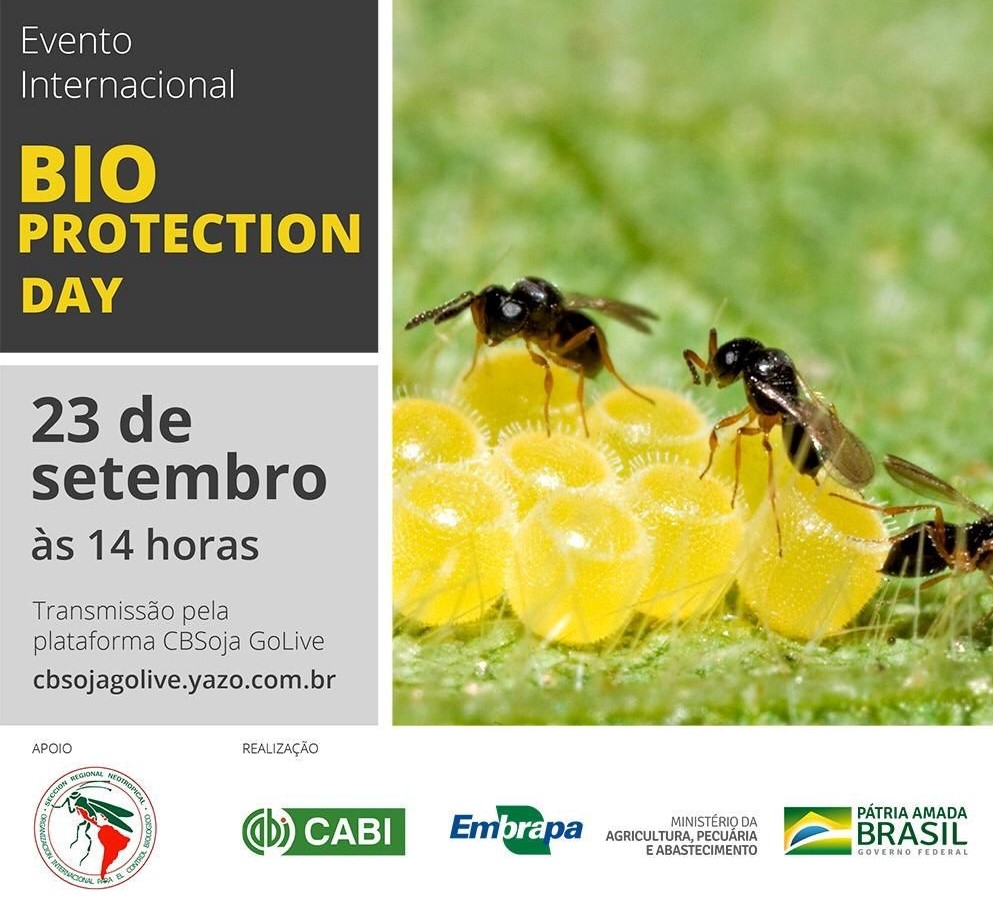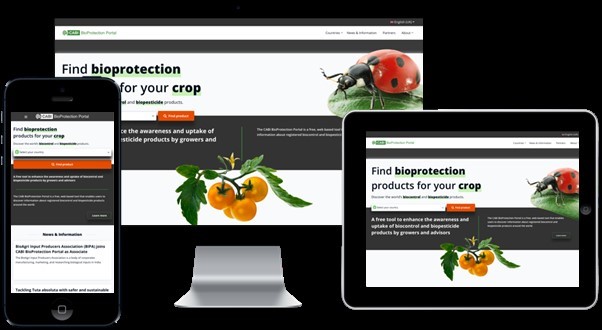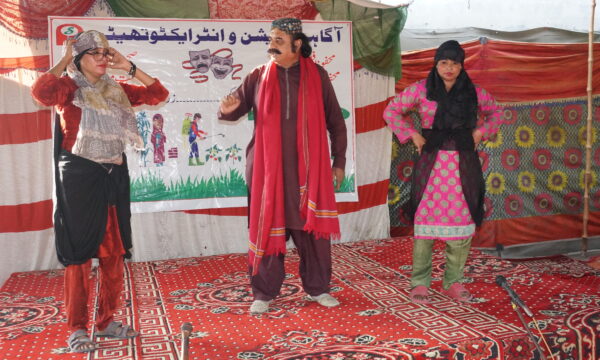CABI has showcased the benefits of the CABI BioProtection Portal during a special Bioprotection Day conference in Brazil held virtually in collaboration with Embrapa Soja the Brazilian Agricultural Research Corporation.
The CABI BioProtection Portal is a free web-based tool that enables users to discover information about registered biocontrol and biopesticide products around the world and is currently available in 16 countries including Brazil, Chile, Peru and Colombia.

Free event
The event, held free on the CBSoja GoLive, focussed on the theme of bio inputs as part of an overall exploration of how more environmentally friendly and sustainable biological controls can mitigate the challenges posed to millions of smallholder farmers whose crops are threatened by pests and diseases.
In total 360 participants attended the event and were welcomed by Dr Guy de Capdeville, Director of Research, Development and Innovation at Embrapa and Dr Daniel Elger, CEO of CABI.
Strengthening relationships
Adeney Bueno, a researcher and international coordinator at Embrapa Soja, said Bioprotection Day was an opportunity to strengthen its relationship with CABI and widen both organization’s networks in the field of the biological control of crop pests and diseases such as the fungal plant pathogen Fusarium oxysporum f. sp. cubense tropical race 4 (TR4) that causes Panama disease of banana, tomato leafminer (Phthorimaea absoluta) and tomato borer – Neoleucinodes elegantalis (Lepidoptera: NNNN).
Other species, recently highlighted by Dr Yelitza Colmenarez, CABI’s Centre Director, Brazil, at a conference of the Caribbean Plant Health Directors Forum (CPHD) aimed at strengthening food security in the region and further afield, include swollen shoot virus (CSSV) in cocoa which is transmitted by Planococcoides njalensis, coffee berry disease (Colletotrichum kahawae) and Pantoea stewartii subsp. stewartii in corn.

BioProtection Portal benefits
Dr Ulli Kuhlmann, CABI’s Executive Director, Global Operations, spoke about the benefits of the CABI BioProtection Portal which include enabling growers and agricultural advisors to identify, source and correctly apply biocontrol and biopesticide products against problematic pests in farmers’ crops.
“It is a valuable asset in the armoury of integrated pest management plans, is available on multiple devices and as such provides key information at the fingertips of anyone who needs it,” Dr Kuhlmann said.
History of biocontrol
Dr Kuhlmann’s presentation followed a talk by Professor José Roberto Postali Parra, of ESALQ-University of Sao Paulo, on the history of biological pest control in Brazil and preceded a speech by researcher Claudine Dinali Santos Seixas on the experiences of Embrapa Soja.
Other presentations included those by Dr Germán Vargas, President of the International Organization for Biological Control – Neotropical Regional Section (IOBC/NTRS), concerning biological control and the importance of technology transfer for its adoption.
Biocontrol testimonials
Another theme explored was the role of the biological control industry in Brazil by the director of biological products at CropLife Brasil, Amália Cristina Piazentim Borsari. The event also highlighted experiential testimonies from biocontrol companies including Carlos Muñoz Alarcón, from Bio Insumos Nativa, and Ricardo Machado, from Koppert.
Additional information
Find out more about the CABI BioProtection Portal here.
See also the blog ‘CABI highlights top 20 crop pests and diseases for possible prioritization in the Eastern Caribbean.’
Embrapa also wrote a news story which can be read here.
Related News & Blogs
Biocontrol that goes the distance: Acerophagus papayae in Kenya
Acerophagus papayae can slow the spread of the invasive papaya mealybug and benefit the wider community. Recent monitoring efforts have shown that the natural enemy is reaching long distances away from the original release sites. Papaya mealybug attack…
20 May 2025




